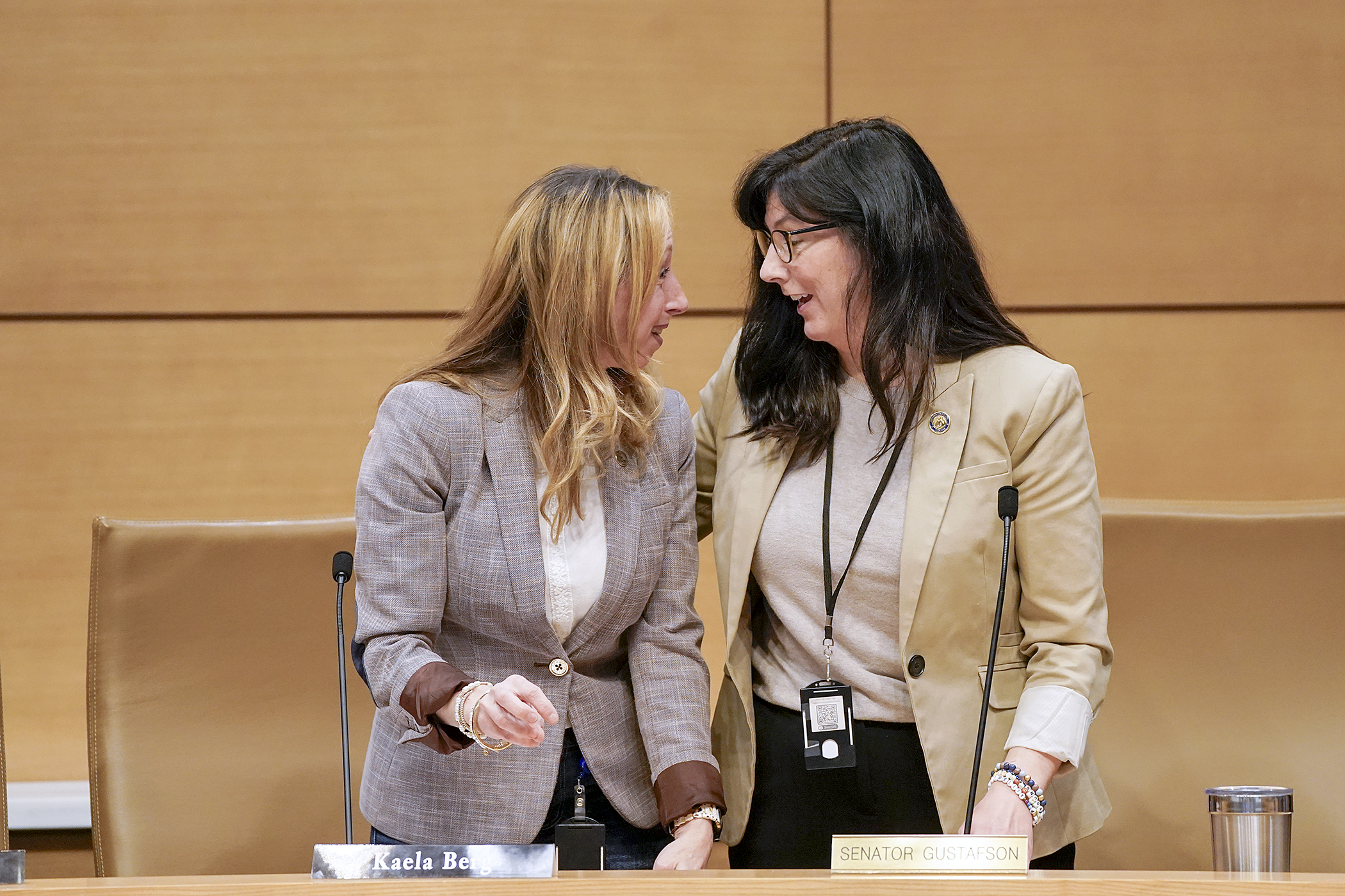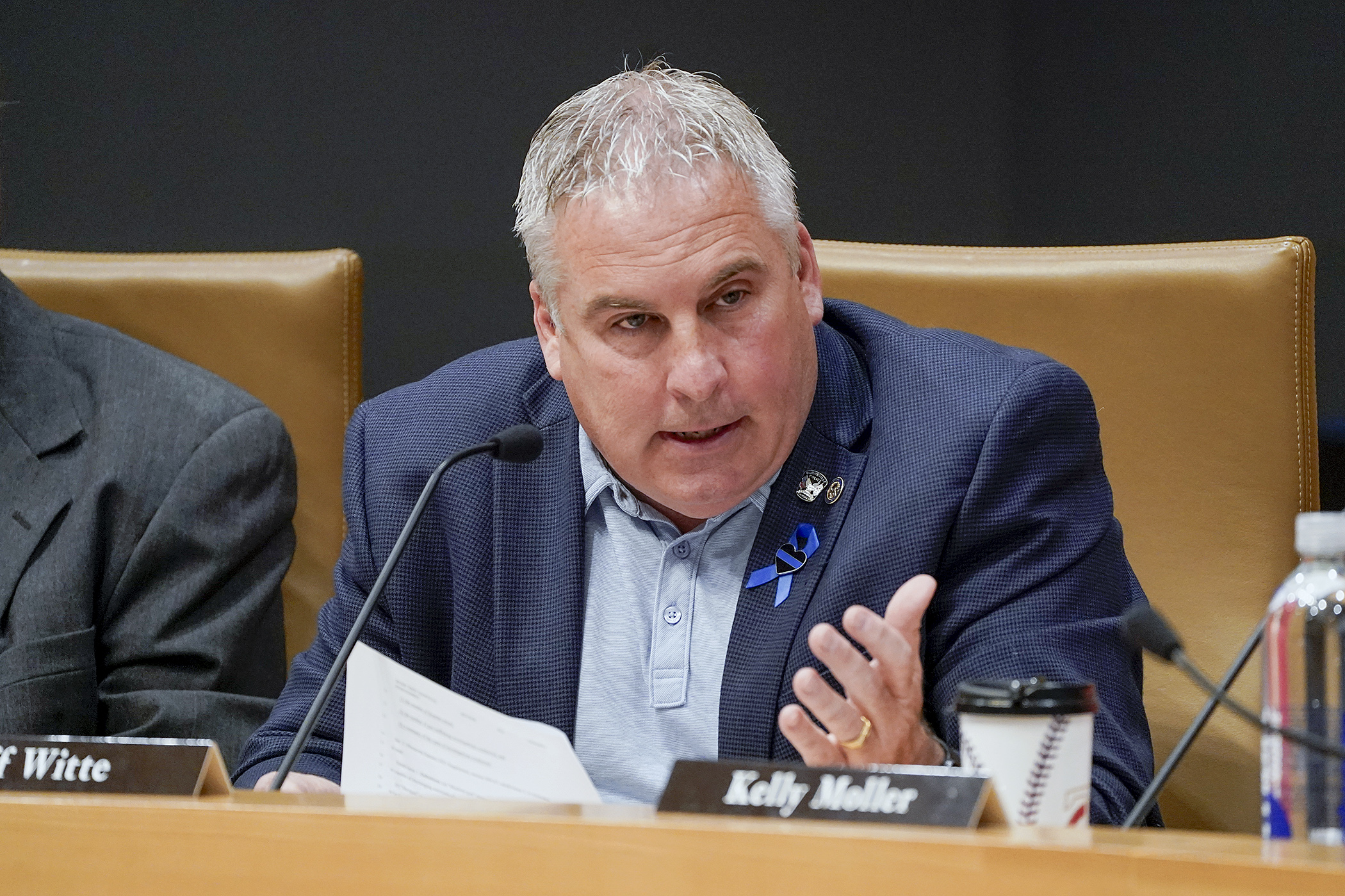Gun bill conference committee agrees to tougher penalties for straw purchases, ban on binary triggers

A straw purchase occurs when an individual buys a firearm for someone ineligible to purchase or possess them.
Bills that would raise the penalty for a straw purchase from a gross misdemeanor to a felony passed the House and Senate earlier this month with minor and technical differences. A conference committee made quick work Thursday on crafting an agreement.
It came in the form of a delete-all amendment to HF2609 adopted by the conferees. The report has been sent to both bodies for possible repassage.
Rep. Kaela Berg (DFL-Burnsville) and Sen. Heather Gustafson (DFL-Vadnais Heights), who co-chair the conference committee, characterize the bill as a common-sense gun-control measure that would help reduce acts of violence against law enforcement officers, first responders, and the public.
Berg represents the area of Burnsville where a man used two AR-15-style firearms to kill three local first responders Feb. 18. His weapons were allegedly obtained from straw purchases made by the man’s girlfriend.
In addition to upgrading a straw purchase penalty to a felony, the bill would amend the crime to include the transfer of any firearm, not just a pistol or semi-automatic military-style assault weapon.
Using an illegally transferred weapon in a felony crime of violence within a year would be an aggravated violation and punishable by up to five years of imprisonment and a $20,000 fine.
An affirmative defense for defendants coerced to make an illegal transfer is provided.
Rep. Jeff Witte (R-Lakeville) unsuccessfully offered an amendment to delete that section, saying it would be too easy for a person arrested for making a straw gun transfer to avoid punishment by “simply claiming domestic abuse.”
 Rep. Jeff Witte presents an amendment during the conference committee on HF2609. (Photo by Michele Jokinen)
Rep. Jeff Witte presents an amendment during the conference committee on HF2609. (Photo by Michele Jokinen)Gustafson said the agreement would require “clear and convincing evidence” for making a successful affirmative defense case. “We want to make sure that we are putting people away who pose a risk and not people who are taken advantage of.”
The conference committee report also contains a provision to ban binary trigger devices that enable a semiautomatic gun to fire more than one shot with a single pull and release of a trigger.
That provision was the focus of an amendment unsuccessfully offered by Witte. He said the ban raises Second Amendment issues and that “law enforcement associations still have some concerns … they include if the trigger activator language would make certain firearms illegal.”
The bill takes the “clarifying” Senate language to describe a binary trigger, Gustafson said, adding the words “came from the [police] chiefs association, and with that amendment change they actually support the bill.”
Related Articles
Search Session Daily
Advanced Search OptionsPriority Dailies
Speaker Emerita Melissa Hortman, husband killed in attack
By HPIS Staff House Speaker Emerita Melissa Hortman (DFL-Brooklyn Park) and her husband, Mark, were fatally shot in their home early Saturday morning.
Gov. Tim Walz announced the news dur...
House Speaker Emerita Melissa Hortman (DFL-Brooklyn Park) and her husband, Mark, were fatally shot in their home early Saturday morning.
Gov. Tim Walz announced the news dur...
Lawmakers deliver budget bills to governor's desk in one-day special session
By Mike Cook About that talk of needing all 21 hours left in a legislative day to complete a special session?
House members were more than up to the challenge Monday. Beginning at 10 a.m...
About that talk of needing all 21 hours left in a legislative day to complete a special session?
House members were more than up to the challenge Monday. Beginning at 10 a.m...